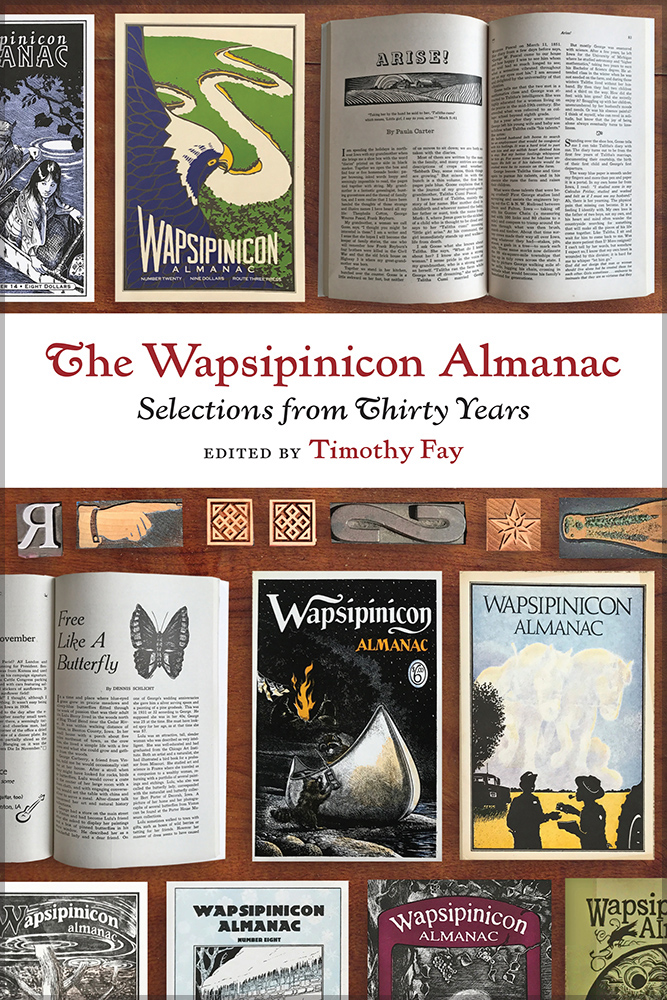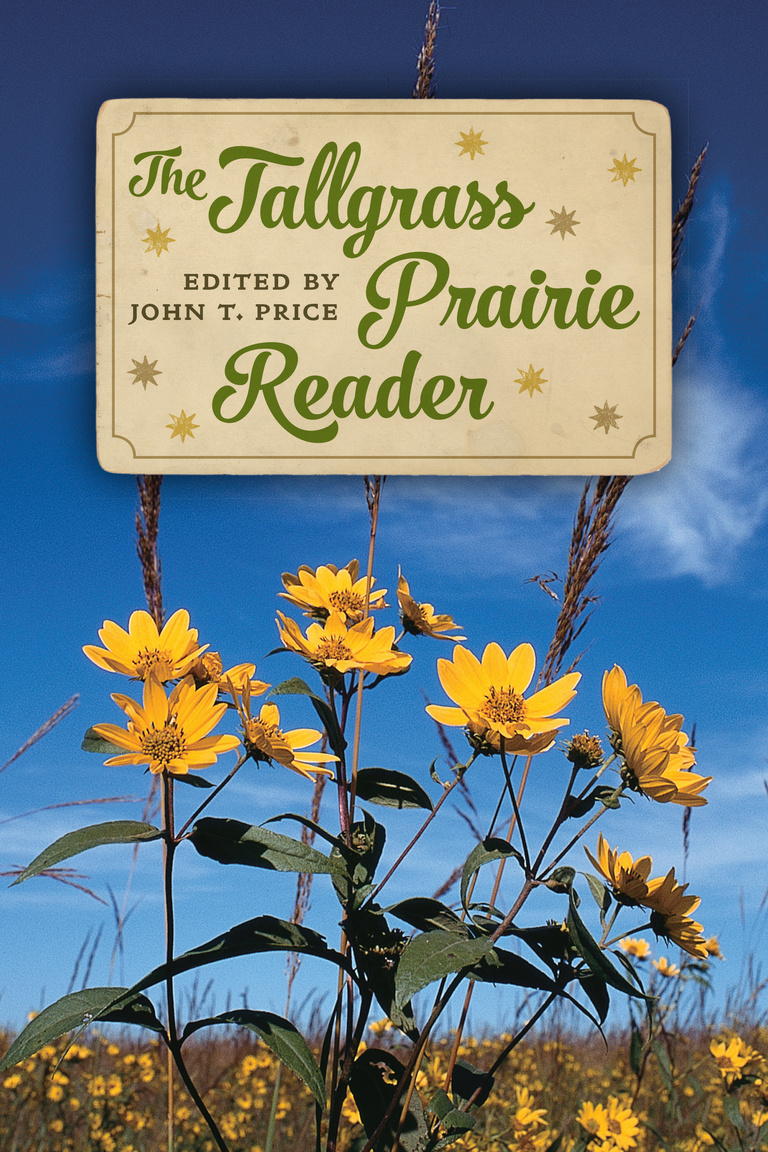In 1988, Timothy Fay published the very first issue of the Wapsipinicon Almanac at his Route 3 Press in Anamosa, Iowa. Fay’s goal was to offer a journal somewhat outside of mainstream Iowa journalism. For thirty years, the annual Wapsipinicon Almanac entertained midwestern readers with timely essays, works of fiction, news notes, art, poetry, and so much more. This book celebrates selections from three decades of the Wapsipinicon Almanac, so that readers can enjoy this important regional publication for years to come.
“I looked forward to each issue of the Wapsipinicon Almanac as a work of art, not only for the talented writers included but for the layout, design, and the ads. And you will look forward to the turn of every page in this book, a collector’s item of a rich and varied literary history in the Midwest.”—Mary Swander, former Poet Laureate of Iowa
“Don’t have a stack of issues containing Tim Fay’s thirty years of essays, art, and advertisements, printed on the original Wapsipinicon Almanac letterpress? Read some of the best here. They show you a bit of Tim Fay’s gift to us.”—David Osterberg, University of Iowa
“The book’s essays, reflections, and fiction offer a range of insights into a slower-paced existence that modernization has largely swept away. . . . not just illuminating and insightful but also beautiful.”—Kansas History
From “Wapsipinicon” by John Peterson
Who remembers when the Wapsipinicon ran wild over
glacial rubble,
The genius of its continent,
And the deep pools simmered with pike
Even through farm country,
Before marginal land was planted,
And fields sprouted stand pipes,
And a tile line ran to every ditch?
From “Talk of the Township”
Our friend Jim Walters of rural Johnson County, writing in a publication for Iowa bird enthusiasts on middle America’s hunger for new, habitat-removing housing developments, notes: “Our modern place names tell us less about what’s there than what’s lost—Pheasant Ridge (no pheasants), Walden Woods (no woods), Apple Ridge (no apples), Willowbrooke Pointe (no willows, no brook, no point).”



